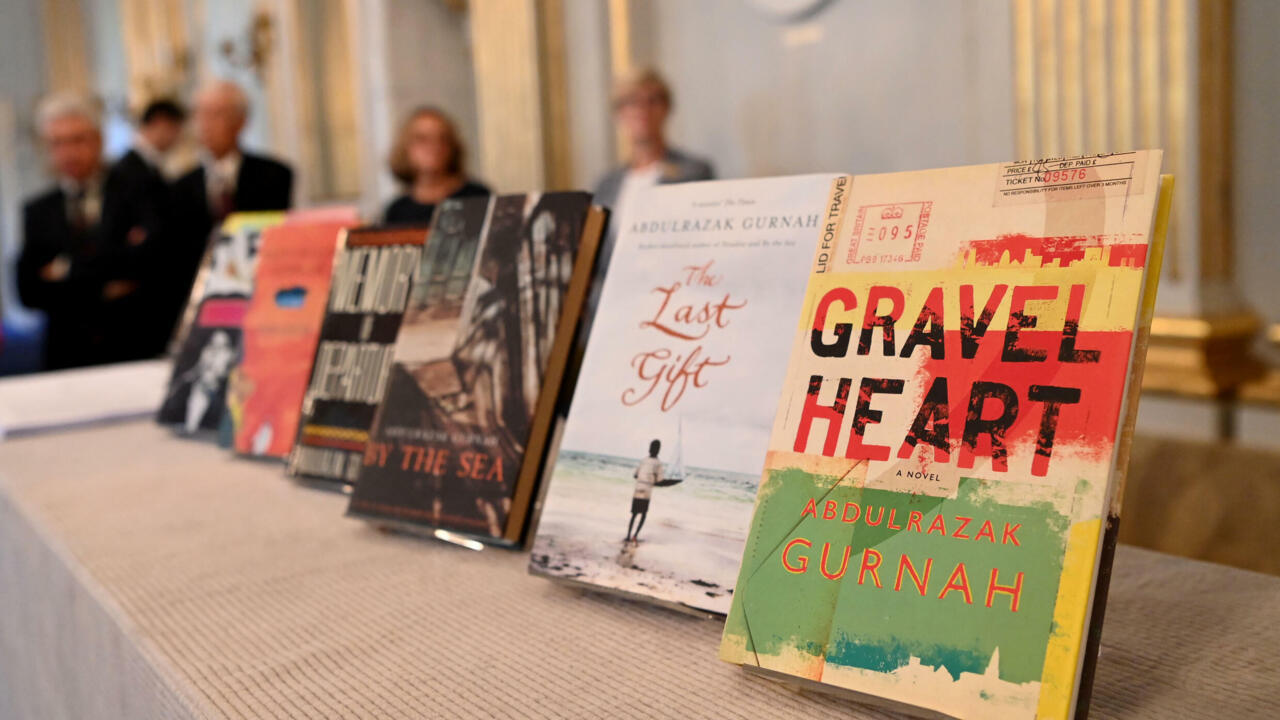Stockholm (AFP)
The Nobel Prize for Literature on Thursday crowned novelist Abdulrazak Gurnah, born in Zanzibar but in exile in the United Kingdom for half a century, for his accounts of the colonial and post-colonial era in East Africa and the torments of refugees stuck between two worlds.
Known in particular for his novels "Paradise" ("Paradis", 1994) and "By the sea" ("Near the sea", 2001), the writer has been awarded for his "empathetic and uncompromising account of the effects of colonialism and the fate of refugees caught between cultures and continents ”, according to the Swedish Academy which awards the prize.
Aged 72, he is the first African author to receive the most prestigious literary awards since 2003.
"It's a wonderful thing. I am absolutely overwhelmed (by emotions) and very proud. It was completely unexpected," he told AFP on the phone, speaking of "immense honor" and of his "joy" at seeing his work thus rewarded.
Having origins in the Arabian Peninsula through his family, he fled Zanzibar, an archipelago in the Indian Ocean, for England in the late 1960s. The Arab minority was then oppressed, a few years after independence and formation of Tanzania.
Abdulrazak Gurnah did not set foot in Zanzibar until 1984, at the bedside of his dying father.
If he has been writing since he was 21, it was not published until 1987, with ten novels and some short stories since.
His latest work, "Afterlives", the sequel to "Paradise", takes place at the beginning of the 20th century at the end of the German colonial era in Tanzania.
He writes in English even though his original language was Swahili.
- "Not empty handed" -
During his first interview with the Nobel Foundation, the laureate called on Europe to change its outlook on refugees from Africa and the migration crisis.
"They don't come empty-handed," said the writer, stressing that they were "talented and energetic people."
The Tanzanian government hailed Abdulrazak Gurnah's consecration, saying it was a "victory" for Tanzania and the African continent.
"You have undoubtedly done justice to your profession, your victory is that of Tanzania and Africa," the government spokesman said on Twitter.
If the Academy places Abdulrazak Gurnah in the literary tradition of the English language under the patronage of Shakespeare and VS Naipaul, "it must be emphasized that he consciously breaks with conventions, shaking up the colonial perspective to highlight that of the local populations" , according to the Nobel jury.
His work moves away from "stereotypical descriptions and opens our eyes to a culturally diverse East Africa that is poorly known in many parts of the world," he explained.
Anders Olsson, Chairman of the Nobel Committee, at the announcement of the Nobel Prize for Literature, December 10, 2020 in Stockholm Fredrik SANDBERG TT News Agency / AFP
"I am an observer (...) I write about what is happening in the world in which I live and, at the moment, (the migration issue) is the theme, the concern of the world in which I live", Mr. Gurnah told AFP again, adding: "this is the story of our time".
Until his recent retirement, he was Professor of English and Post-Colonial Literature at the University of Kent in Canterbury, where he was a keen connoisseur of the work of Nigerian Nobel Literature Wole Soyinka and Kenyan Ngugi. wa Thiong'o, who was among the favorites for the Nobel this year.
"No author today has articulated the punishments of exile and the rewards of belonging so well. Canterbury and Kent are both his exile and his home," responded Bashir Abu. Manneh, the director of his former university department.
Gurnah is also the first black African author to receive the most prestigious literary awards since that same Soyinka in 1986.
- "A joke" -
This price thwarted all predictions.
His own publisher in Sweden, Henrik Celander, explained that he never imagined he would land the literary grail.
When the Academy called, "I thought it was a joke," said the winner.
"His writing sometimes has cynicism, to wake us up, tell us the memory, the loss and the migrants before we talk about it so much in the news", told AFP Emmanuelle Colas, who published the writer in France within the late Galaade editions.
By crowning a work centered on colonialism and emigration, the Nobel devotes current questions between memorial apologies and identity tensions.
AFP Nobel Prize for Literature
Often criticized for its Eurocentrism, the Academy has been seeking since 2019 to broaden its horizons.
Even if the president of the Nobel committee had taken care to reaffirm at the beginning of the week that "literary merit" remained "the absolute and unique criterion".
Of the 118 laureates in literature since the creation of the prizes in 1901, 95, or nearly 80%, are Europeans or North Americans.
But the Academy likes to honor writers in the shadows who in its eyes deserve the light of the world, with the million euros that goes with it.
Last year, the little-known American poet Louise Glück received the Nobel for literature for her work "of austere beauty".
The Nobel season continues on Friday in Oslo with the long-awaited Peace Prize, to end on Monday with the economy.
© 2021 AFP

